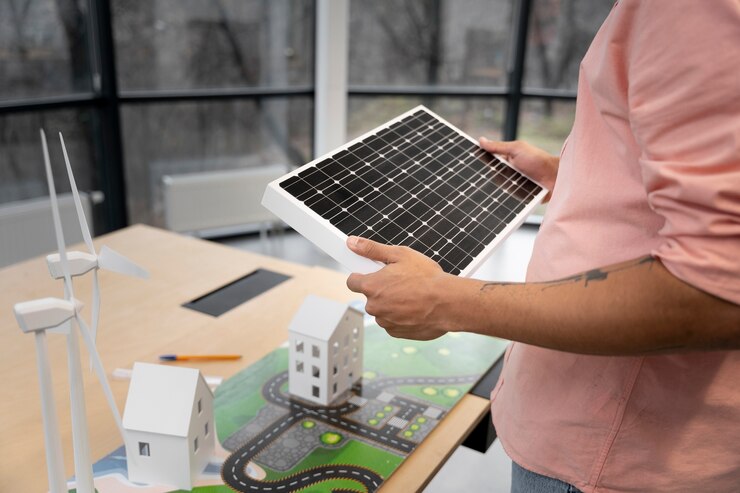As the world continues to shift towards more sustainable and renewable energy sources, solar energy management systems (SEMS) are becoming increasingly crucial. These systems help optimize the performance of solar power systems, ensuring that energy production is efficient, cost-effective, and sustainable. With the growing adoption of solar energy, SEMS are playing a significant role in improving the overall efficiency and reliability of solar installations, whether for residential, commercial, or industrial purposes.
What Are Solar Energy Management Systems?
Solar energy management systems are advanced technologies designed to monitor, control, and optimize the production and consumption of energy in solar power systems. These systems integrate various components, such as solar panels, inverters, batteries, and other storage devices, to ensure maximum energy production and consumption efficiency. By using real-time data and smart algorithms, SEMS make it possible to monitor the performance of each component, track solar energy generation, and manage how energy is stored or consumed.
Key Features of Solar Energy Management Systems
1. Real-Time Monitoring and Analytics
One of the primary benefits of solar energy management systems is their ability to provide real-time monitoring of solar energy generation. This feature allows users to track how much energy is being produced at any given moment, helping identify underperformance or issues with specific components like solar panels or inverters. By analyzing this data, owners can take action to correct problems before they lead to costly repairs.
2. Energy Optimization
An effective SEMS can optimize the way energy is distributed and consumed. This includes managing energy storage systems like batteries, deciding when to use stored energy and when to draw from the grid. In some cases, SEMS can even integrate with smart grids, allowing users to sell excess energy back to the grid during periods of low demand, maximizing cost savings.
3. Battery Management
Many modern solar energy systems are paired with battery storage to help store excess energy generated during the day for use at night or during cloudy periods. A key function of SEMS is to manage the charging and discharging cycles of these batteries, ensuring that they are used efficiently without being overcharged or drained too much. By optimizing battery performance, SEMS help extend the lifespan of the storage system and reduce energy waste.
4. Remote Control and Automation
With the rise of smart homes and connected devices, SEMS often feature remote control capabilities. This means users can monitor and adjust the settings of their solar power systems from anywhere using a smartphone or web-based platform. This convenience allows for better management of solar energy, even when users are not physically present at the location.
How Solar Energy Management Systems Contribute to Sustainability
The role of solar energy management systems extends beyond just optimizing energy use – it’s also a key driver of sustainability. By enabling solar installations to work at their maximum efficiency, SEMS help reduce the overall environmental impact. They ensure that the energy generated is used as effectively as possible, reducing the need for backup power from non-renewable sources like coal or natural gas.
Moreover, as the world works toward reducing carbon emissions, SEMS are crucial for improving the integration of renewable energy sources. By monitoring energy production in real-time, SEMS can help prevent wastage, making renewable energy more reliable and consistent in meeting global energy needs.
The Future of Solar Energy Management Systems
With the advancement of smart technologies and the increasing importance of sustainability, solar energy management systems are evolving rapidly. Future systems will likely feature even more sophisticated algorithms and artificial intelligence (AI) to predict energy needs and optimize power usage. As the technology advances, we can expect even greater efficiency, lower costs, and enhanced integration with other smart energy systems like electric vehicles (EVs) and home energy management systems.
Additionally, as battery technology improves, SEMS will become better at managing energy storage, leading to more reliable and efficient solar energy solutions. This is particularly important for areas where sunlight is not consistent year-round, as reliable storage and management of excess energy will be essential for uninterrupted power supply.
Solar energy management systems are vital tools for optimizing the efficiency of solar power systems. By providing real-time monitoring, optimizing energy consumption, and enhancing battery management, SEMS contribute to more sustainable and cost-effective solar energy solutions. As the world continues to prioritize renewable energy, SEMS will play an increasingly important role in helping businesses and households harness the full potential of solar power.
With continued technological advancements, solar energy management systems will not only improve solar energy efficiency but also support the broader transition to a more sustainable, energy-efficient world. Whether you’re looking to optimize your own solar system or are considering investing in one, integrating a smart energy management system will ensure that you’re getting the most out of your renewable energy sources.




